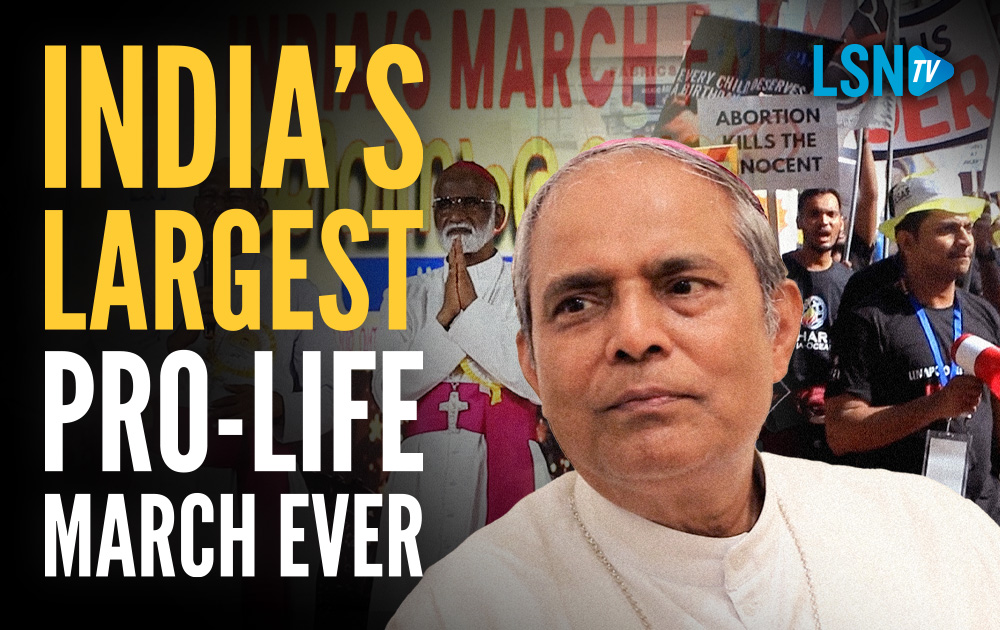
(LifeSiteNews) — In an exclusive interview with LifeSite’s Rachel Chittilapilly, Bishop Gerald John Mathias of the Diocese of Lucknow, India, discussed the country’s 2024 National March for Life.
The march, which took place in the city of Thrissur, drew 7,500 participants, making it the largest pro-life march in the India’s history.
Chittilapilly first asked Bishop Mathias what brought him to this year’s March for Life. His Excellency explained that he has always been interested in medical ethics. His interest in pro-life-related issues was enhanced when he began teaching moral theology at a seminary.
“[I] kept reading, especially the Church documents, because I had to teach Church teaching on life issues,” the bishop said. “So, I like life issues, I like medical bioethics, and I have written a few articles on these subjects, so I said I’ll take part in [the march].”
Speaking out about the ‘culture of death’
Mathias noted that speaking about the sanctity of life is very important to him, and he is grateful for these opportunities to discuss these issues.
“Whenever I get a chance to speak on life, speak on [the] culture of love, [the] civilization of love, and speak against the culture of death, I have always spoken about it, written about it,” he said. Mathias emphasized that many people are willing to speak out against these crucial issues; even priests and bishops often won’t speak out against the culture of death. But he reminded viewers that that is the duty of the clergy.
“The Church and we, particularly the priests, the bishops, must conscientize people,” the bishop added. “More and more people should join this movement, and more and more people should be pro-life. They should defend life; they should defend the defenseless, the voiceless, the innocent, the silent ones who cannot speak, who cannot defend themselves: the children in the womb.”
Human rights and the unborn
His Excellency then went into how practically everyone these days wants to talk about human rights guaranteed in constitutions, but we don’t often hear about the right to life. “The most fundamental, the first of all rights, is the right to life. If the right to life is not there, if that is violated, then we can’t figure [out] education or liberty, [or] freedom of religion, and no other right is possible.”
Mathias underscored that because the right to life is so important, it must be defended. The bishop then stressed that since the right to life is vital, the pro-life movement needs to be spread far and wide, and more people must become aware of the need to protect life. “More important for the laypeople to be involved,” he said, adding that their work for the pro-life movement must continue, so they will need more laypeople to join them.
The importance of the youth
Mathias said he is grateful for the young people involved in defending the unborn and is impressed with their enthusiasm for the movement. “I’m grateful to the youth, particularly the youth taking interest.” The bishop also noted that adults don’t always take an interest in the pro-life movement, but thankfully young people are showing that interest. “Most encouraging it is for the future of the Church, future of the society, future of families.”
Message to Indian Catholics
Bishop Mathias gave a simple message, “Defend life, respect life, promote life. And avoid any grave violation of life.”
“And so, my appeal is to follow the teaching of the Church and respect life, to defend the dignity of human life. Always from the first moment of conception to natural death. Nobody has the right to an abortion or has the right to kill another person. And particularly innocent, defenseless, voiceless children in the womb must be defended,” His Excellency added.

